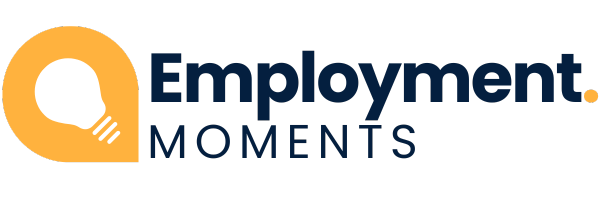Looking ahead, it’s key to know about new jobs and trends. The jobs in high demand will change due to tech advances and societal shifts. The U.S. Bureau of Labor Statistics says healthcare, tech, and green energy will grow a lot.
A World Economic Forum report talks about how automation and digital changes are big. It shows we need to learn new skills to keep up. Knowing these upcoming career trends helps us choose the right path for the future.
Understanding the Evolving Job Market
The job market is always changing, thanks to technology and globalization. These changes bring both challenges and chances for the future. It’s important to understand these shifts to navigate your career.
The Impact of Technology on Employment Trends
Automation, artificial intelligence, and machine learning are changing the workforce. The World Economic Forum says up to 85 million jobs could be lost by 2025. But, there’s hope.
Jobs in tech, like data analysts and software developers, are growing fast. These roles will not only appear but also flourish in the new job market.
Globalization and Job Opportunities
The global economy is making new job chances but also adding complexity. Companies are looking for talent worldwide, making the job market competitive. McKinsey’s research shows globalization will create more jobs, especially in STEM fields.
This trend also means we’ll need more people who can work well with others from different cultures. Skills in cross-cultural communication and teamwork will be key in a diverse workplace.
Key Industries Shaping Future Professions
The job market is changing fast, with some industries leading the way. Healthcare, technology, and renewable energy are expected to grow a lot. These sectors will shape the jobs of the future.
Healthcare is crucial because of an aging population and ongoing health issues. Jobs like nurse practitioners, telehealth specialists, and health informatics experts will become more common. This makes healthcare a top sector for new jobs.
The tech and IT world is also booming. It’s growing in cloud computing, cybersecurity, and artificial intelligence. By 2026, software development jobs are expected to increase by 11%. This shows tech is a great field for new careers.
Renewable energy is becoming more important for jobs too. The Bureau of Labor Statistics predicts a huge jump in solar photovoltaic installer jobs. This growth shows a big push toward green jobs and new energy technologies.
Emerging Skills for Future Careers
The world of work is changing fast, and new skills are needed for the future. As jobs evolve with technology and society’s needs, it’s key to have a wide range of skills. Digital literacy is a top skill, as today’s jobs require knowing how to use digital tools and understand data and security.
Being able to adapt and be flexible is also crucial. People who can quickly adjust to new situations are in high demand. This is because companies are always changing their ways of working.
Soft skills are also very important. Skills like communication, teamwork, and emotional smarts are needed more than ever. A LinkedIn survey found that 92% of talent experts think soft skills are just as important as technical ones. So, working on these skills is vital for your career in the future.
The Role of Education and Training
The world of work is changing fast. This makes education and training key for getting ready for the future. Online courses from places like Coursera and Udacity help people learn new skills easily.
Vocational training is becoming more important, especially in healthcare and manufacturing. Community colleges are working with local businesses. They create training programs that help students get jobs right away.
Education is moving towards combining different subjects. This is because employers want people with both technical and soft skills. This way, students can adapt to the changing job market.
Forecasting Future Job Trends
Job trend forecasting shows a big change in the job world. New jobs like virtual reality developers, drone operators, and sustainability consultants are on the rise. The U.S. Labor Statistics data says keeping up with these trends is key to success.
The gig economy is also changing how we work. More people are choosing freelance or contract jobs for their flexibility. A Statista study found 36% of U.S. workers are in gig jobs, showing a shift towards more freedom in work.
Remote work is expected to stay popular, offering jobs that don’t require a specific location. Surveys show most companies now look for remote work skills in job candidates. This meets employee needs and improves work-life balance.
Preparing for Tomorrow’s Job Market
Career planning is key to navigating the changing job market. It’s important to have a long-term plan that looks for growth in different areas. This helps make smart choices and find jobs that match your skills and interests.
Networking and making professional connections are also vital. Talking to people in your field can give you great advice and job tips. Using sites like LinkedIn can help you meet people and stay visible in your industry. Building a strong network can lead to new opportunities and help guide you in your job search.
Lastly, always be ready to learn more. Taking part in workshops and seminars keeps you up-to-date with industry trends. This commitment to learning not only improves your skills but also prepares you for future job opportunities. It sets you up for success in your career.

